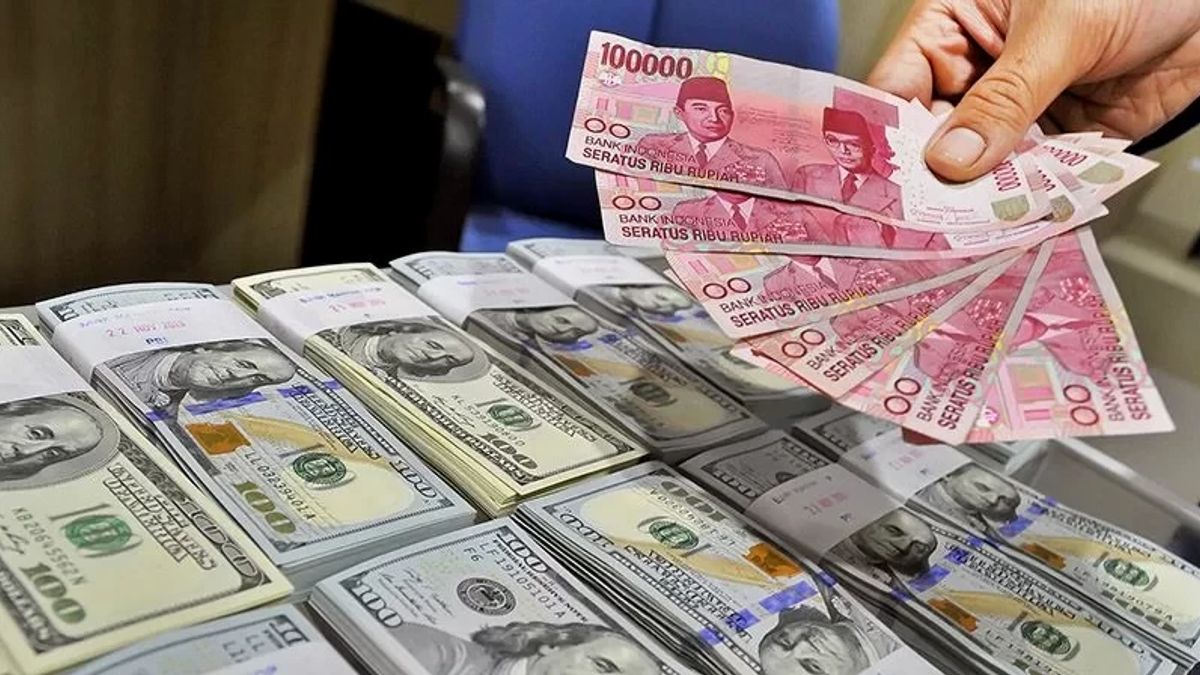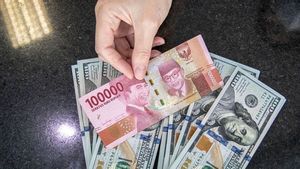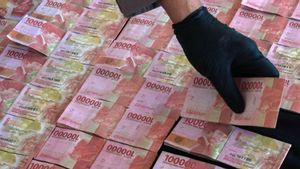JAKARTA - Head of Bank Permata economist, Josua Pardede said that in recent weeks, strengthening the United States (US) dollar against the main currency ultimately also had an impact on strengthening Asian currencies including the Rupiah.
"The current weakening of the Rupiah exchange rate, which is still around Rp. 16,400 per US dollar, is influenced by global sentiment factors, especially the weakening of major currencies including Euro, Yen and Sterling," he explained in his statement, Friday, June 21.
Josua said the strengthening of the US dollar was driven by an increase in demand for safe-haven assets amid the ongoing turmoil in Europe ahead of the French parliamentary elections at the end of the month.
In addition, US inflation data that is lower than expected tends to boost the weakening of the US dollar but the results of the June FOMC meeting indicate the Fed will only cut the Fed's interest rate by 25bps this year to push back the strengthening of the US dollar.
Apart from global factors, Josua said that the weakening of the Rupiah was also influenced by reports from one of the foreign news agencies regarding the increase in the ratio of the next government debt, although the source could not be confirmed.
"The government's future spending policy is feared to tend to be more expansive in the future so that the deficit tends to increase sharply," he said.
Josua expressed concern that this was also reflected in the increase in 10-year bond yields by 21bps to the level of 7.13 percent.
According to Josua, in the midst of the uncertainty of the global financial market that still dominates, BI is expected to remain in the market to carry out triple interventions in order to maintain the stability of the rupiah exchange rate so that it has the potential to affect the development of foreign exchange reserves in the short term.
SEE ALSO:
Josua said that weakening the rupiah exchange rate will have the potential to affect companies/economic sectors that import raw materials will face higher costs so that they have the potential to reduce the profit margin from the company.
On the other hand, Josua said export-oriented issuers/companies could benefit because their products became more competitive in the international market.
Josua added that the weakening of the rupiah also has the potential to encourage imported inflation which ultimately affects the national inflation rate and affects consumer purchasing power and affects the performance of companies listed on the stock exchange.
The English, Chinese, Japanese, Arabic, and French versions are automatically generated by the AI. So there may still be inaccuracies in translating, please always see Indonesian as our main language. (system supported by DigitalSiber.id)















